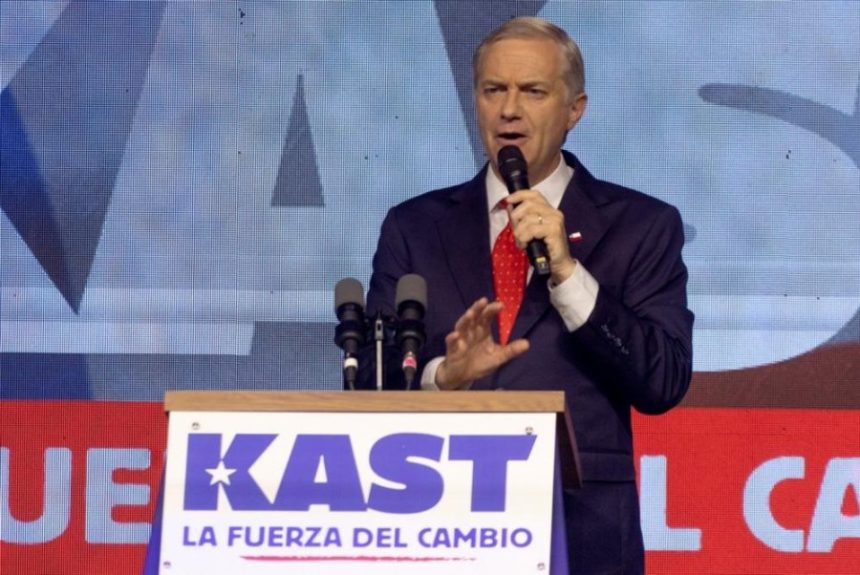Nov. 17 (UPI) — Far-right candidate José Antonio Kast secured a spot in Chile’s presidential runoff Dec. 14 with about 23.9% of the vote after a high-turnout election Sunday that reshaped the country’s political landscape.
Although leftist candidate Jeannette Jara led the first round with about 26.8% of the vote, Kast emerged as the contender with the strongest path to the presidency after receiving the backing of the two other right-wing candidates in the race. Together they would total 51% of the vote.
After polls closed, results confirmed Jara’s advance to the runoff with the largest share of votes nationwide. Still, the votes won by the Communist Party member barely surpassed President Gabriel Boric’s first-round result in 2021 (25.83%) and fell well short of the threshold above 30% that the current government needed for her to remain competitive in the second round.
Kast capitalized on dissatisfaction with the outgoing administration and concerns over public safety. His message of law and order, stricter immigration policies and a smaller state positioned him as the right’s leading figure in an election where the political center once again appeared weakened.
The surprise of the day came from economist Franco Parisi, who unexpectedly placed third with 19.7% and whose voters are expected to play a decisive role in the runoff.
After the results were announced, Parisi declined to endorse either remaining candidate and urged them to “earn the votes,” Emol reported.
Sociologist and socialist political scientist Alfredo Joignant told La Tercera that this election marks the end of a political cycle that lasted six years and began with the social uprising.
According to the Joignant, Chile went through a particularly turbulent period in which “everything happened,” from the 2019 social crisis and the pandemic that followed to the election of Gabriel Boric in 2021, two failed attempts to replace the Constitution and the gradual weakening of a government that, in the public’s view, ended up diminished and unable to lead.
Results from the parliamentary elections also held Sunday, in which voters chose the entire lower house and half the Senate, produced a Congress tilted to the right.
The Senate ended up nearly evenly split between the governing coalition and the opposition, while in the Chamber of Deputies right-wing and far-right parties will form the dominant bloc, the digital outlet The Clinic reported.
In practice, this means any future government will have to negotiate its reforms case by case. If Kast wins, he would have a more aligned base in the lower house but not a blank check for high-quorum constitutional changes. If Jara wins, she would face a hostile legislature with strong capacity to block progressive and social legislation.
These were the first presidential and parliamentary elections held with mandatory voting and automatic voter registration. According to the Electoral Service, 85.4% of the 15.7 million eligible voters went to the polls, making this the highest turnout in the country’s history.
Jara and Kast will face each other in a race that again polarizes Chile’s political landscape.








